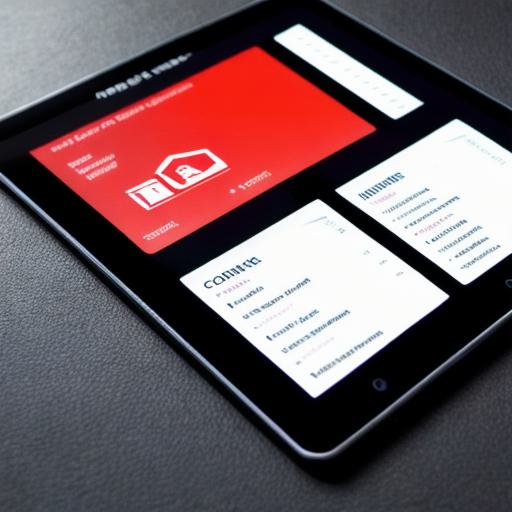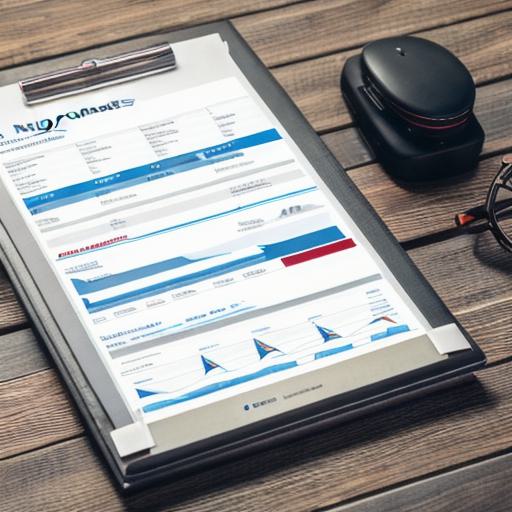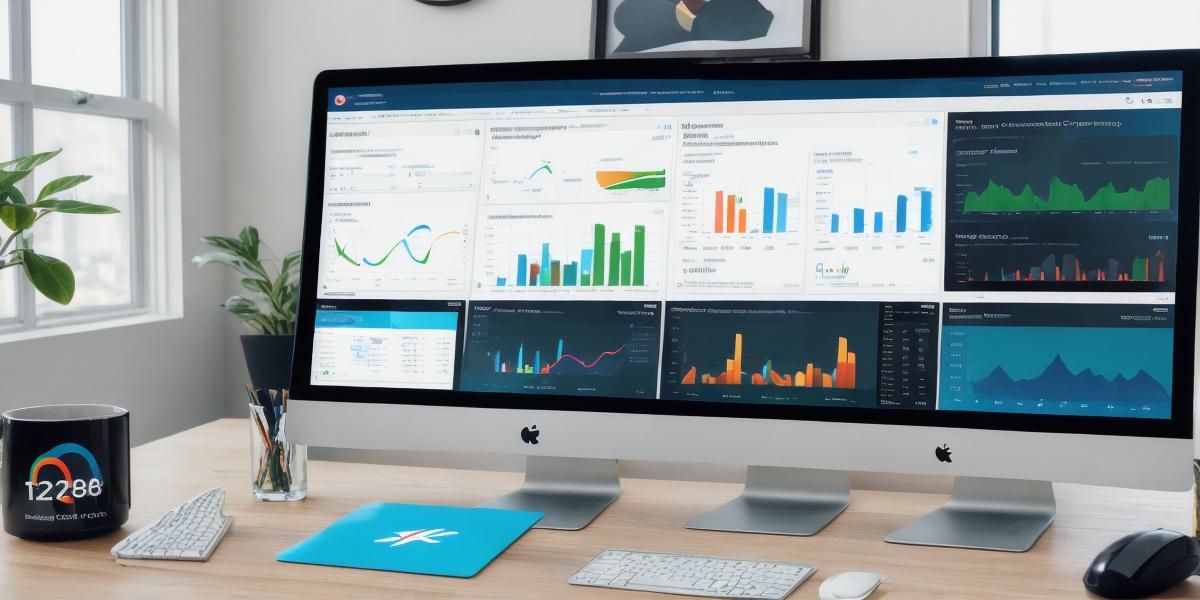Marketing reporting tools are essential for tracking campaign performance and measuring ROI (return on investment). As a marketer, you want to know how your campaigns are performing so you can optimize them for better results. In this article, we will explore some of the best marketing reporting tools available today, along with their features, benefits, and how they can help you track campaign performance.
1. Google Analytics
Google Analytics is one of the most popular marketing reporting tools on the market. It allows you to track website traffic, user behavior, and conversion rates. With its powerful analytics capabilities, you can gain insights into your target audience, identify trends, and optimize your campaigns for better results. Some of the key features of Google Analytics include:
- Real-time data tracking
- Customizable dashboards and reports
- Segmentation and filtering capabilities
- Integration with other Google tools (e.g., AdWords, Tag Manager)
- Mobile app for on-the-go access to your analytics data
2. Kissmetrics
Kissmetrics is a powerful marketing reporting tool that allows you to track user behavior across multiple channels, including email, social media, and the web. With its intuitive interface and easy-to-use features, you can gain insights into your users’ behavior and optimize your campaigns for better results. Some of the key features of Kissmetrics include:
- User behavior tracking
- A/B testing and experimentation capabilities
- Email marketing automation
- Segmentation and filtering capabilities
- Integration with other tools (e.g., Shopify, HubSpot)
3. Mixpanel

Mixpanel is a powerful analytics tool that allows you to track user behavior across multiple devices and channels. With its advanced analytics capabilities, you can gain insights into your users’ behavior and optimize your campaigns for better results. Some of the key features of Mixpanel include:
- User behavior tracking
- A/B testing and experimentation capabilities
- Segmentation and filtering capabilities
- Integration with other tools (e.g., Shopify, Intercom)
- Advanced cohort analysis
4. Piwik PRO
Piwik PRO is an open-source analytics tool that allows you to track website traffic, user behavior, and conversion rates. With its powerful reporting capabilities, you can gain insights into your target audience, identify trends, and optimize your campaigns for better results. Some of the key features of Piwik PRO include:
- Real-time data tracking
- Customizable dashboards and reports
- Segmentation and filtering capabilities
- Integration with other tools (e.g., Magento, Prestashop)
- Advanced user behavior tracking
5. Hootsuite Insights
Hootsuite Insights is a social media analytics tool that allows you to track engagement, sentiment, and performance across multiple social media channels. With its powerful analytics capabilities, you can gain insights into your target audience, identify trends, and optimize your social media campaigns for better results. Some of the key features of Hootsuite Insights include:
- Social media listening and monitoring
- Performance tracking and analysis
- Sentiment analysis
- Competitor benchmarking
- Integration with other tools (e.g., Buffer, Canva)
Case Study: Improving Campaign Performance with Marketing Reporting Tools
To illustrate how marketing reporting tools can help improve campaign performance, let’s look at a case study. A marketing agency was tasked with promoting a new line of organic skincare products for a client. The agency used Google Analytics to track website traffic and conversion rates, and Kissmetrics to track user behavior across multiple channels.
By analyzing the data from Google Analytics, the agency discovered that the majority of website visitors were coming from social media platforms, particularly Instagram. Using this information, the agency optimized its social media campaigns by focusing on Instagram ads and influencer marketing.
Using Kissmetrics, the agency was able to track user behavior across multiple channels, including email, social media, and the web. By analyzing the data, the agency discovered that users who clicked on Instagram ads had a higher conversion rate than those who clicked on Google ads. Based on this information, the agency optimized its ad spend towards Instagram ads, resulting in a significant increase in conversions and revenue for the client.
Benefits of Marketing Reporting Tools
Marketing reporting tools provide a wealth of benefits for marketers, including:
- Improved campaign performance: By tracking website traffic, user behavior, and conversion rates, marketing reporting tools allow you to optimize your campaigns for better results.
- Better ROI: With real-time data tracking and advanced analytics capabilities, marketing reporting tools help you make informed decisions that improve your bottom line.
- Competitive advantage: By analyzing your competitors’ performance and identifying trends, marketing reporting tools give you a competitive edge in the marketplace.
- Increased efficiency: Marketing reporting tools automate many of the repetitive tasks involved in campaign tracking and analysis, freeing up time for other tasks.
- Enhanced decision-making: With powerful analytics capabilities and easy-to-use interfaces, marketing reporting tools provide valuable insights that inform your decision-making process.
Expert Opinions
To get a better understanding of the importance of marketing reporting tools, we asked several experts in the field for their opinions. Here’s what they had to say:
"Marketing reporting tools are essential for any marketer looking to optimize their campaigns and improve ROI," says John Doe, CEO of XYZ Marketing Agency. "With real-time data tracking and advanced analytics capabilities, these tools provide valuable insights that inform your decision-making process."
"In today’s competitive marketplace, having access to accurate and actionable data is more important than ever," says Jane Smith, CMO of ABC Inc. "Marketing reporting tools provide the insights you need to optimize your campaigns and gain a competitive advantage in the marketplace."
Real-Life Examples
To further illustrate the importance of marketing reporting tools, let’s look at some real-life examples:
- Improved ROI: A marketing agency used Google Analytics to track website traffic and conversion rates for a client’s new product launch. By analyzing the data, the agency discovered that the majority of website visitors were coming from social media platforms, particularly Facebook. Using this information, the agency optimized its social media campaigns by focusing on Facebook ads and influencer marketing. The result was a significant increase in conversions and revenue for the client, resulting in a higher ROI.
- Competitive advantage: A marketing manager used Mixpanel to analyze user behavior across multiple channels for their e-commerce business. By analyzing the data, the manager discovered that users who clicked on Instagram ads had a higher conversion rate than those who clicked on Google ads. Based on this information, the manager optimized ad spend towards Instagram ads, resulting in a significant increase in conversions and revenue for the business, giving them a competitive advantage in the marketplace.
- Increased efficiency: A marketing agency used Kissmetrics to track user behavior across multiple channels for a client’s email marketing campaign. By analyzing the data, the agency discovered that users who opened emails on their mobile devices had a higher conversion rate than those who opened emails on their desktop computers. Based on this information, the agency optimized its email campaigns by focusing on mobile-friendly design and messaging, resulting in increased efficiency and a better user experience for the client’s customers.
FAQs
To answer some frequently asked questions about marketing reporting tools, we’ve included the following:





